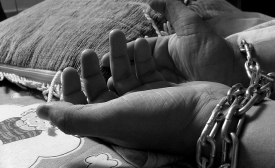Cultural Diplomacy
South Korean Culture Minister Kim Jong-deok will attend a culture ministers' conference with his Chinese and Japanese counterparts on Jeju Island [...] Entering its eighth edition, the trilateral meeting on Saturday and Sunday will focus on ways to establish an Asian cultural community as a joint project by the three countries in arts, cultural assets, and the culture-related industry.
Serena hotels under its Cultural Diplomacy Initiative arranged a Bosnian Cultural Evening featuring musical performances by the Bosnian sibling duo, Jasmina and Dzenana Sehanovic, to raise funds for the construction of the Pak-Bosnian School in Pind Dadan Khan, Jhelum, says a press release.
Tokyo stole the show at the Olympic closing ceremony in Rio de Janeiro this week as the event's next host city prepares for a cultural charm offensive ahead of the 2020 Games. In a surprise move, Japanese Prime Minister Shinzo Abe dressed up as Super Mario at the ceremony
Organized by the Yunus Emre Institute under the auspices of the Presidency, the seceond Turkish Language Festival will take place on Aug. 27 at the Ülker Sports Arena, which will host 540 students from 46 countries. [...] The event comes at a meaningful time with ongoing conflicts dividing countries all around the world.
With the aim to promote China-Iran exchange and cooperation, a Chinese cultural festival opened at Niavaran Cultural Center in the Iranian capital Tehran on Monday. The one-week event, titled "2016 Experience China in Iran," features northwest China's Xinjiang Uygur Autonomous Region through a photo exhibition and other cultural activities.

The role of dramatic theater as a vehicle for human rights discourse.
A clear majority of Australians (72 percent) said they would like to learn more about Indonesian culture — a strong finding for champions of cultural diplomacy. When the discussions turned to education, the alignment was unmistakable: 57 percent of Indonesians said they would like to learn more about Australia and a similar number (59 percent) agreed basic education about Australia should be improved in Indonesian schools.
the 27-year-old decided to come up with a better solution: learning language through talking. He launched Poliglota, a platform that organizes conversation groups for people seeking to learn a new language. The groups gather in public spaces such as parks, coffee shops and bars to converse. Anyone can join or host a group for free.







